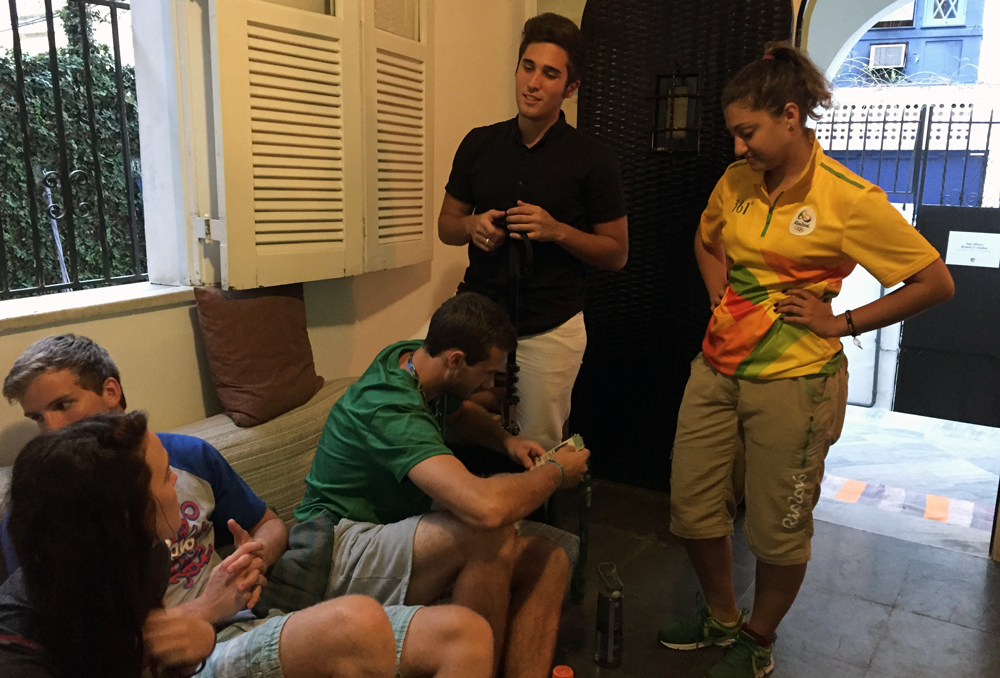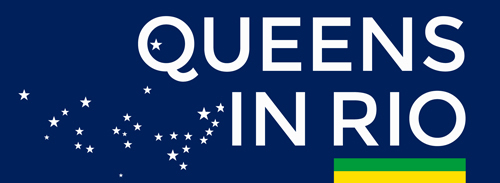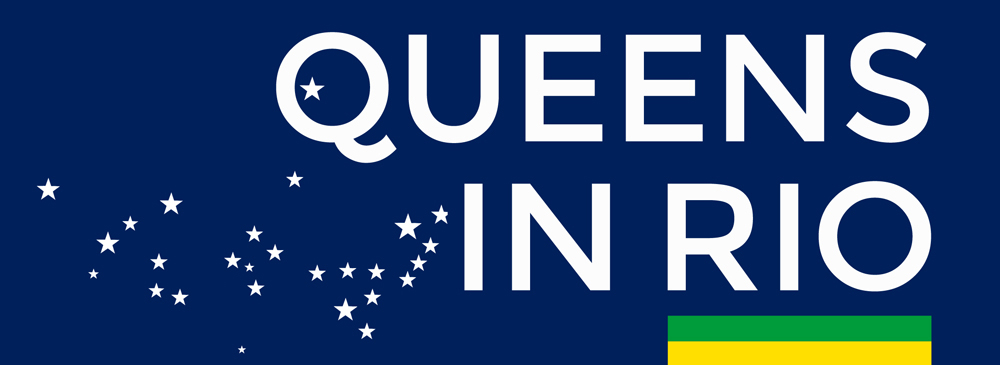More than 70,000 volunteers support the Rio 2016 Paralympic and Olympic Games. Many have trained to support these events for two years, and signed up to support both the Olympics in August and the Paralympics in September.
Raiana Richter, one of these volunteers, works as a receptionist at the 021 Hostel in the Botafogo neighborhood in Rio. Raiana is a post-graduate student in environmental issues at the University of Rio de Janeiro, and holds a bachelor’s degree in biology from the University of São Paulo.
“During the Olympics I worked with a specific country, a specific delegation. There were around 1,000 assistants, but each delegation had their own assistant. Mine was Uganda.
“It started around two years ago. I applied on the Internet on the official site. The interview was one year ago. We did an interview with a group and then we had an interview on the Internet.
“Just to be close for such a huge event is exciting. It’s the biggest event in the world. The volunteers, the people from the IOC, the NOCs, the athletes — everybody does their best for this. You know everybody wants to make it happen and make it happen the best ever. So just to see people working together as such a huge event, it’s very inspiring, completely unbelievable and unforgettable.
“Every day we are meeting new people, people from all parts of the world. I would never have thought that I would know people from Uganda. They are so similar with us Brazilians. We made friends during the Olympics Games. It’s not just a work. It’s a life experience. I think that’s why the volunteers are an important part of the process during the Olympic Games. Because it’s not just a job; it’s an experience of life.
“This is my first time as a volunteer. Working as a volunteer is pretty different than working and receiving money. I’m really learning a lot about what is work. Why do we work? Why do we spend hours of our days of our lives for some event, for some company or something? Of course we have to receive money because we work. Our system is like that. We need money to do other things. But when you work you are giving the hours of your life. It’s not just for receiving money. I’m learning that work has to mean something to you, not just for the money. It has to mean something for you.”
Isadora Travagin, a journalism major at Mackenzie Presbyterian University in São Paulo, served as field producer and Portuguese translator on this story.

Photo: Paralympic and Olympic volunteer Raiana Richter in the lobby of the 021 Hostel in Rio’s Botafogo neighborhood.

